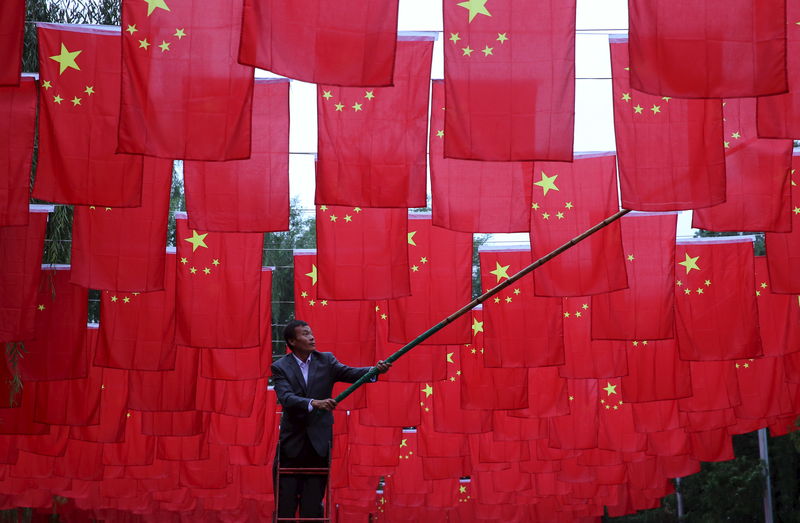Novo Nordisk, Eli Lilly fall after Trump comments on weight loss drug pricing
Adds analyst comments
Investing.com-- Chinese consumer price index inflation shrank more than expected in September as private consumption showed few signs of recovery amid weak economic conditions, with producer inflation falling for a third straight year.
CPI inflation shrank 0.3% year-on-year in September, government data showed on Wednesday. The print was weaker than expectations for a drop of 0.2%, but improved slightly from the 0.4% seen in the prior month.
CPI rose 0.1% month-on-month, missing expectations of 0.2% but picking up from no growth in August.
Core CPI inflation-- which excludes food and energy prices-- rose 1% y-o-y in September. Core inflation grew for a fifth consecutive month, and returned to 1% growth for the first time in 19 months.
Private spending remained weak as the effects of late-2024 stimulus measures from Beijing began to peter out. The Chinese government is expected to dole out more supportive measures in the coming months, as it seeks to shake off a persistent deflationary trend.
Wednesday’s data showed this trend remained squarely in play, especially as China’s economic growth dwindled and as a property market downturn persisted. Higher U.S. trade tariffs also weighed on the country’s export sector, although recent data showed exports surged in September.
While Beijing had doled out a slew of stimulus measures aimed at boosting consumption, they appeared to have provided only temporary support to the sector.
Wednesday’s data showed China’s manufacturing sector remained on the backfoot, with producer price index inflation falling 2.3% y-o-y in September, as expected.
The print marked a 36th consecutive month of PPI deflation, reflecting a sustained decline in factory gate prices.
Still, PPI improved slightly from the 2.9% decline seen in August, following some measures from Beijing to rein in excessive competition and dissuade price cuts.
Capital Economics analysts noted that while inflation had improved marginally in September, a bulk of this was largely due to "temporary factors and base effects," rather than the impact of Beijing’s measures.
"Policymakers are now taking deflation more seriously. But we doubt that supply-side solutions they are proposing will succeed without substantial demand-side support," Capital Economics analysts wrote in a note.
"We see little prospect of a meaningful improvement in China’s deflationary environment in the near term. We continue to expect both CPI and PPI to stay in deflation this year and next."
Beijing is expected to do more to shore up laggard economic growth, especially if a renewed trade war with the U.S. presents more challenges for the world’s second-largest economy.
Still, inflation is expected to pick up in October, on the back of the Golden Week holiday.
